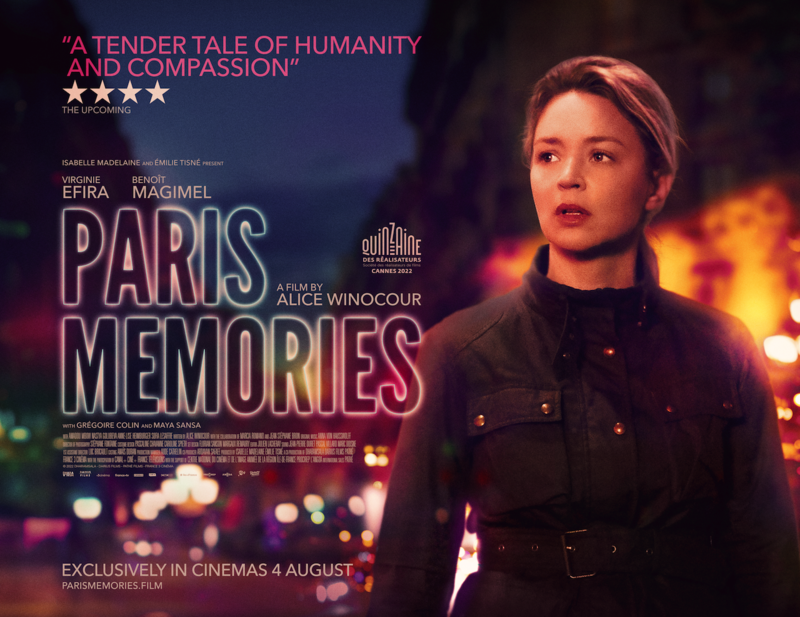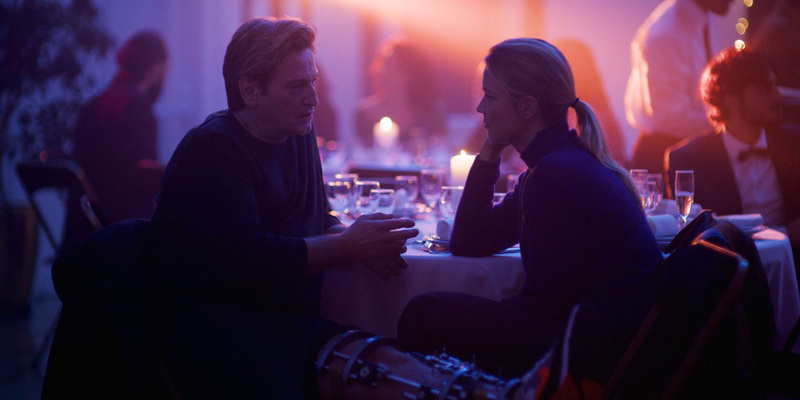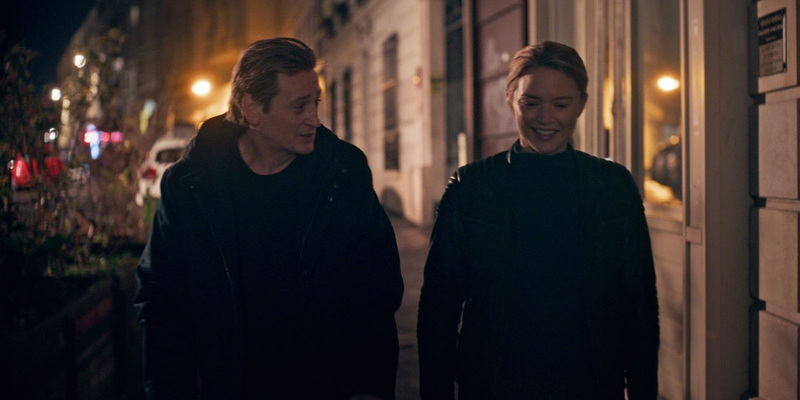
Review by
Eric Hillis
Directed by: Alice Winocour
Starring: Virginie Efira, Benoît Magimel, Grégoire Colin, Maya Sansa, Amadou Mbow

Mention Paris in a game of word association a decade ago and the reply
would probably be a variation of "romance." Ask the same question five
years ago and the French capital may have provoked a response of
"terrorism." The lack of attacks in Western Europe in the last few years
now makes that not so long ago period when the continent seemed to
suffer weekly atrocities a distant era. Of course, that's not the case
for anyone caught up in such incidents. I imagine survivors of the
November 2015 massacre at Paris's Bataclan venue think about that awful
night every day.

One such survivor is the brother of filmmaker Alice Winocour (Disorder;
Proxima). Inspired by his story, Winocour has created a fictional survivor of
a fictional terrorist in Mia, played by rising Belgian star
Virginie Efira. When a night out with her doctor boyfriend
Vincent (Gregoire Colin) is cut short as he's called to work, Mia
decides to stop by another bistro for a drink, only to find herself
cowering under a table for her life when a group of men start shooting
everyone in sight.
Months later, Paris is beginning to move on from the attack (memorial
wreaths are uncermoniously swept away by council workers) but Mia is
still stuck on that night, haunted by memories she's unsure are even
accurate. Mia joins a group of survivors who meet each week in the same
bistro where the attack occurred, helping each other to move forward.
One angry woman accuses Mia of locking herself away in a bathroom,
something Mia has no recollection of. A wounded survivor, Thomas (Benoit Magimel), confesses that he was about to ask Mia to join him for a drink when
the shooting started, and that as far as he can recollect, she never hid
in a bathroom.

As Mia immerses herself in the venue, memories begin to emerge. One in
particular stands out, that of a young Senegalese man (Amadou Mbow) gripping her hand as they hid from the gunmen. Mia begins inquiring
into who this man might be, but things become complicated when it
emerges that he's an undocumented migrant who doesn't want to be
exposed.
Aside from a few on-the-nose details, like how Mia's apartment happens
to overlook a memorial to the attack, Winocour presents Mia's journey in
a matter-of-fact manner, free of sentimentality or melodrama. It's a
largely procedural narrative, with Mia taking the role of detective in
her own case. Mia's desire to piece together her lived experience echoes
the narratives of thrillers like Blow-Up, Deep Red and Blowout, but she doesn't have the luxury of having any physical media to edit
together. Strips of film and reels of sound exist only in her fractured,
unreliable mind.

Often clad in a motorcyclist's helmet, Mia is initially guarded from
the world around her, and she's constantly seen gripping the helmet in
her hand as though ready to don it at the first indication of trouble.
As the film progresses and Mia opens up, she becomes looser in her
posture and the smile we saw in the movie's early scenes begins to
return. Efira often appears to be looking intently, but Winocour refuses
to allow the viewer to see just what is holding her gaze. Perhaps Mia
doesn't know herself, and is looking through people and walls for
answers. In the film's closing scene she looks once again, but we see
what has caught her gaze, the symbol of hope Mia has been looking for.
By that point it's clear that taking down a memorial isn't enough to
allow Paris to move on from its recent past, but it's telling that the
film closes on an image of romance.

Paris Memories is on MUBI UK
now.
